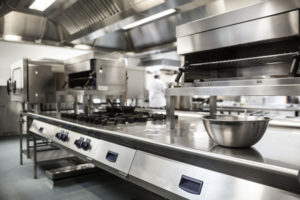 Proper kitchen hygiene ensures that food stays sterile and prevents the outbreak of foodborne illnesses. Food safety accreditation companies, such as aia.edu.au, understand that one of the kitchen hygiene measures people need to take note of is keeping raw foods separate from ready-to-eat foods. Doing so will reduce the risk of cross-contamination. In addition to food segregation, here are other ways to minimise cross-contamination in the kitchen.
Proper kitchen hygiene ensures that food stays sterile and prevents the outbreak of foodborne illnesses. Food safety accreditation companies, such as aia.edu.au, understand that one of the kitchen hygiene measures people need to take note of is keeping raw foods separate from ready-to-eat foods. Doing so will reduce the risk of cross-contamination. In addition to food segregation, here are other ways to minimise cross-contamination in the kitchen.
Use Clean Utensils
Using different utensils for different cooking tasks is a good start when you want to prevent cross-contamination. Ensure that you use a separate cutting board when chopping fruits, vegetables and meat. Using the same cutting board for all food types can easily lead to the transfer of bacteria from the uncooked protein to the fruits and vegetables, after all. In terms of cleaning equipment used to prepare raw meats, use separate drying rags and dish towels. Moreover, refrain from wiping a utensil with a rag used to clean meat.
Wash Your Hands Thoroughly
Another way to prevent cross-contamination is to wash your hands properly. Your hands can harbour bacteria from various sources, so it is important to wash them thoroughly before working with any food.
Proper hand washing starts by removing one’s bracelets, rings and other accessories from both hands. Put your hands under hot water and lather it with soap. Scrub your hands thoroughly and pay close attention to the fingernails, nail beds and the skin between the fingers. Lastly, rinse your hands and dry them using a clean towel.
Store Food Properly
Lastly, steer clear of cross-contamination by storing foods in clean, secure containers. Place fruits and vegetables on the top shelf of the fridge as they are foods that are least likely to drip. Meats like fish, chicken and beef are likely to drip more than fresh produce, so place them at the bottom of the fridge. Doing so will prevent them from contaminating other foods in case they do leak from their containers.
Using clean utensils, washing hands and storing food properly can help prevent cross-contamination, especially when people work with different foods. These hygiene measures can ensure that all food coming out of the kitchen stays fresh, clean and safe.

